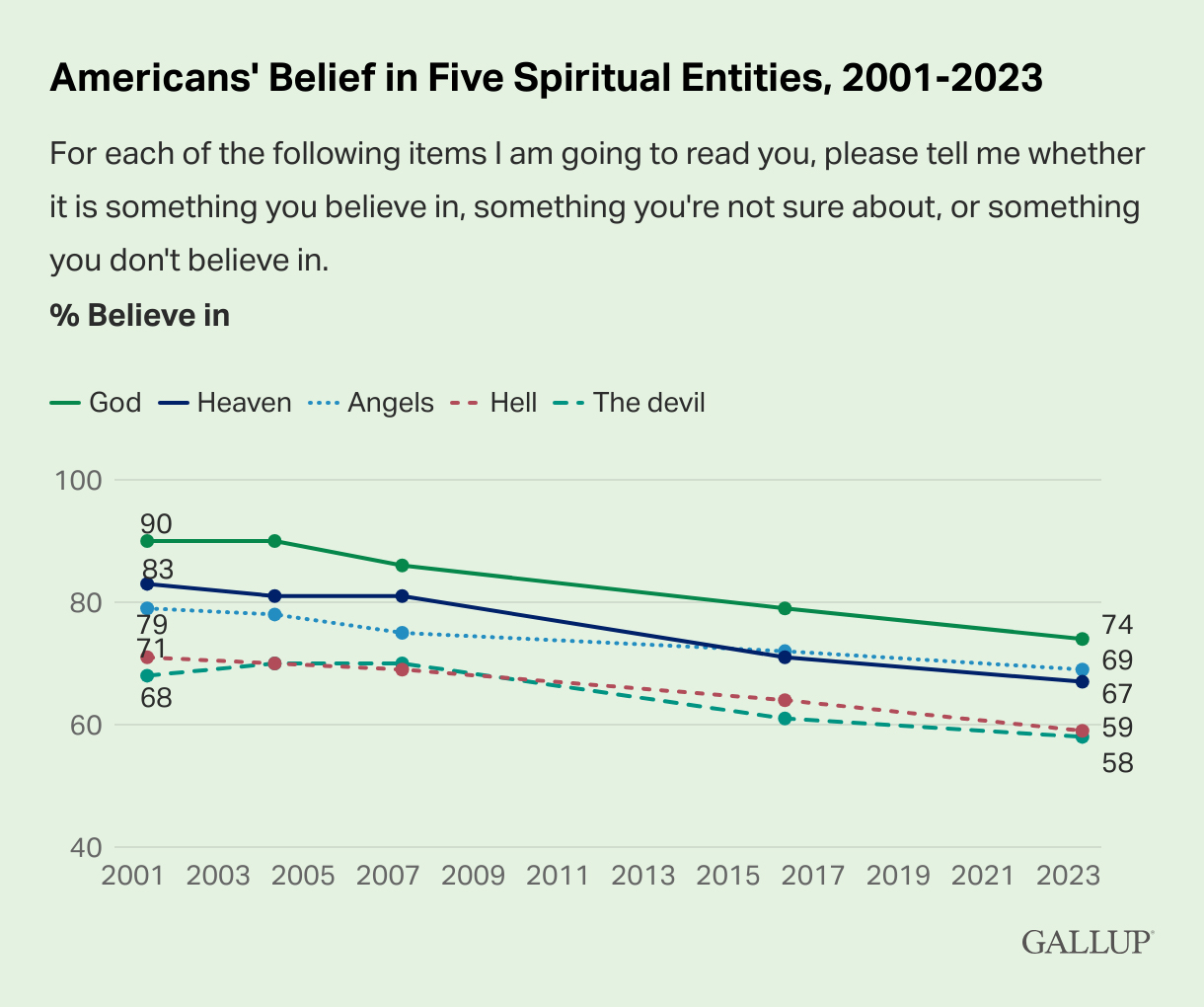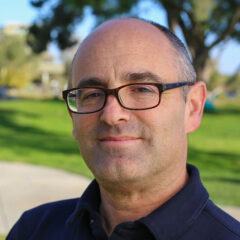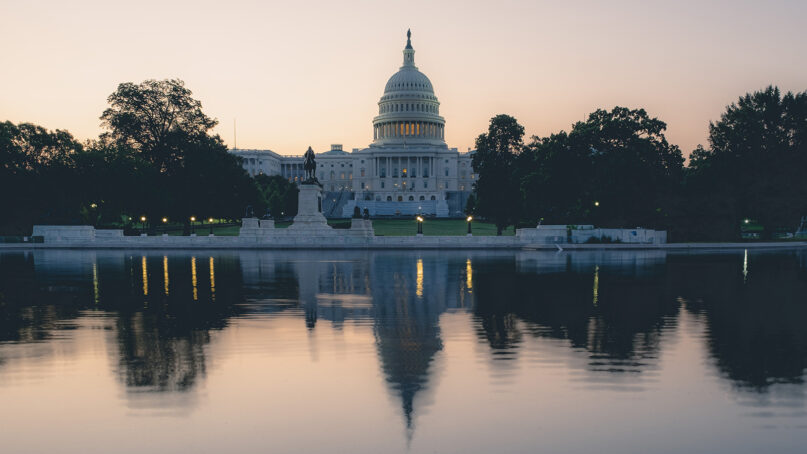(RNS) — The decline of religion in America continues.
Last week, Gallup released new data showing that standard Christian beliefs are at all-time lows. Back in 2001, 90% of Americans believed in God; that figure is now down to 74%. Belief in heaven has gone from 83% down to 67%; belief in hell from 71% down to 59%; belief in angels from 79% down to 69%; belief in the devil from 68% down to 58%.
These declines in personal belief are tracking with church attendance, which is at an all-time low (even when accounting for the pandemic’s social distancing). Religious wedding ceremonies are similarly at an all-time low, as the percentage of Americans claiming to have no religion has hit an all-time high.
Some readers will despair at this sweeping secularization. They know the value of strong congregational community, the meaningfulness of sacred rituals, the comfort of spiritual solace and the power of religiously inspired charitable works.
But even those who experience and treasure these benefits of belief should take solace in the fact that the decline of religion in American society is nonetheless good for our democracy. of
There are two basic types of secularization: The oppressive kind comes from the barrel of an atheist dictator’s gun. Think of the former U.S.S.R. or Khmer Rouge Cambodia, where the communist regime, seeking to stomp out any and all ideological rivals, repressed religion systematically and often violently. Such forced secularization is to be resisted and condemned.

“Americans’ Belief in Five Spiritual Entities, 2001-2023” Graphic courtesy Gallup
The other type of secularization is organic. It emerges naturally as societies become more modern, educated, prosperous and rational. Think of Scandinavia or Japan. When secularization occurs naturally within free societies and people simply stop being religious of their own volition, such a change comes with many positive correlates — not least healthier democratic values and institutions.
This is what we are seeing here in the United States: No one is being forced to become secular. Millions of Americans are simply choosing to do so. And this will be good for our republic, as the existing data shows.
A healthy democracy requires active participation in the very enterprise of self-governance. On that front, atheists and agnostics stand out. When it comes to attending political meetings, protests and marches, putting up political lawn signs, donating to candidates, working for candidates or contacting elected officials, the godless are among the most active and engaged. Americans who are affirmatively secular in their orientation — atheists, agnostics, humanists, freethinkers — are more likely to vote in elections than their religious peers.
Another crucial pillar of democracy is tolerance, the acceptance of people who are different from us, or behave and believe differently. In a diverse and pluralistic nation such as ours, civic tolerance of difference is essential. In study after study, nonreligious people are found to be much more tolerant than religious people.
For example, when Americans are asked if they are willing to grant the same rights that they enjoy to political groups they personally oppose, secular people are much more likely than religious people to say yes. When it comes to supporting civil liberties for various stigmatized minority groups, the secular are, again, notably more tolerant than the religious.
Additionally, atheists have markedly lower levels of in-group bias than religious people, which actually makes them more accepting and tolerant of religious people than religious people are of them.
A third necessary component of a healthy democracy is for its citizens to be informed and knowledgeable about current events, to be critical thinkers and to be able to differentiate between fact and fiction. This is especially in our social-media-saturated world, in which we are bombarded with fake news. Research shows that secular people are on average more analytically adept than religious people. Religiosity, especially strong religiosity, is significantly correlated with greater acceptance of fake news.
The very first sentence of the U.S. Constitution’s very First Amendment states that “Congress shall make no law respecting an establishment of religion, or prohibiting the free exercise thereof.” This fundamental principle of our democracy, which bars the government from either promoting or persecuting religion, is essential in a society that contains millions of people with multiple religious faiths, and no religious faith at all. In recent years, the U.S. Supreme Court has shown a willingness to bulldoze this safeguard, threatening one of the founding premises of our nation.

Phil Zuckerman. Courtesy photo
The best hope for our democracy may be the growing number of secular Americans, who are by far the most supportive of repairing this principle.
(Phil Zuckerman is a professor of sociology and secular studies and associate dean of faculty at Pitzer College. He is the author of several books and, most recently, is a co-author of “Beyond Doubt: The Secularization of Society.” The views expressed in this commentary do not necessarily reflect those of Religion News Service.)





